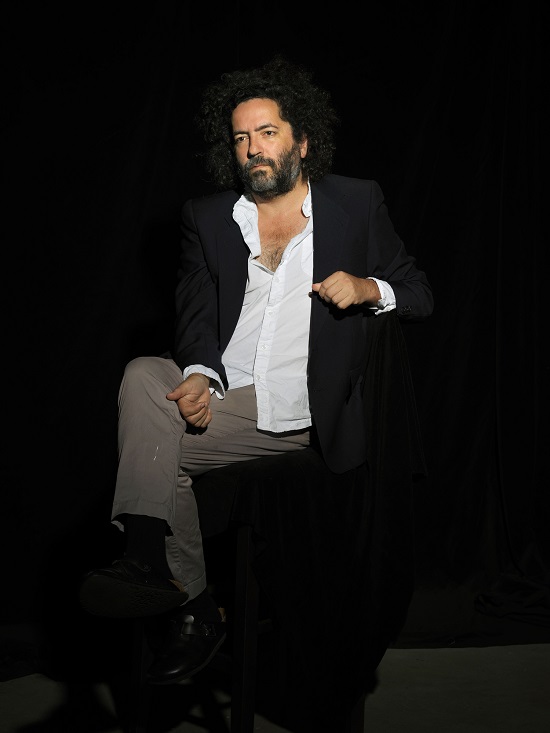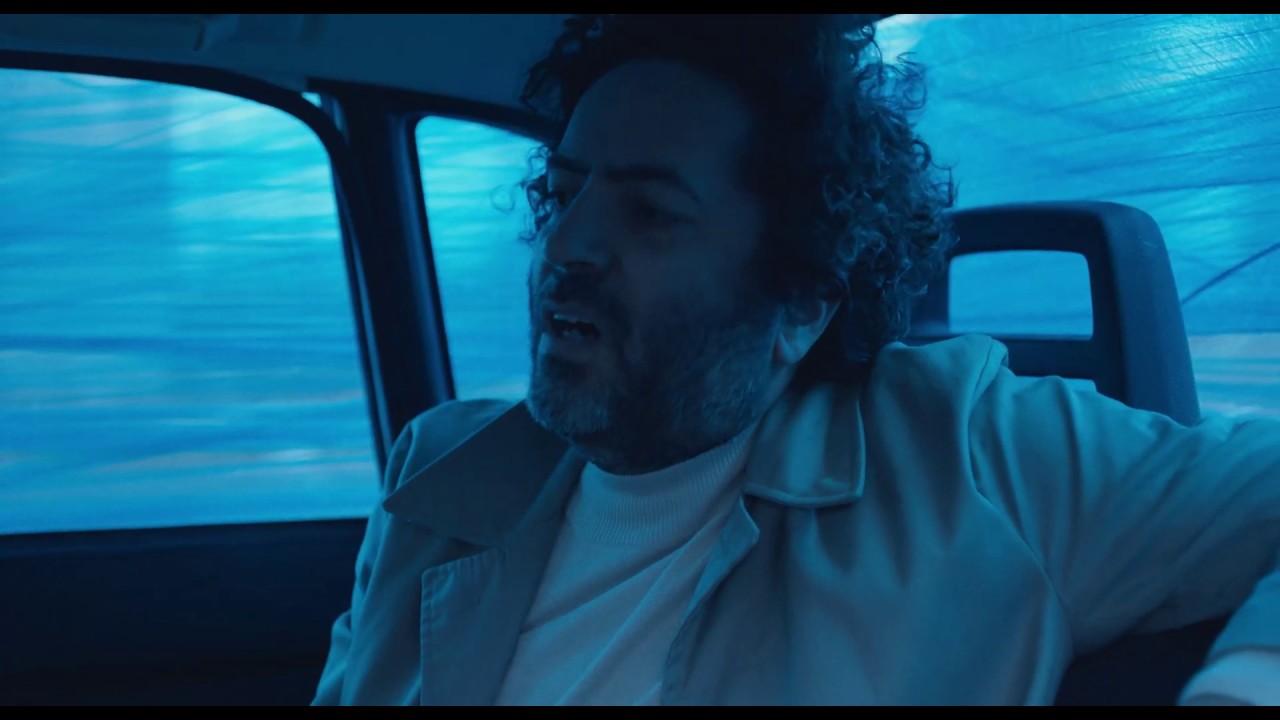Photo: Maegan Hill-Carroll
“I kind of like art that is disastrous for the artist,” says Dan Bejar. “It’s exciting to watch somebody really go for it and come up with something that’s interesting but still incredibly flawed.” He’s not talking about his new album, alas, but about Wim Wender’s doomed 1991 sci-fi flick Until The End Of The World; the five-hour director’s cut, to be precise. “It’s equal part dystopia and caper, which is very much the Destroyer vibe,” he adds, in typical deadpan.
The movie was on Bejar’s mind when he was making Have We Met, his 12th release in 25 years. It is a record that brims with a dystopian melodrama, an album that is at once his grooviest and his coldest to date. Though Bejar says he also likes to view his own work as interesting-but-flawed – “I always see them as kind of messy works, it keeps me going” – unfortunately for him it’s hard to find much in the way of flaws with Have We Met. It’s ambitious, theatrical and dark, but it’s also tightly realised. It is perhaps the best thing he’s ever released.
That said, the album was initially conceived as a somewhat Wenders-esque ‘Y2K concept album’ as Bejar calls it, a little facetiously. “I was telling John [Collins, long-time producer and collaborator] ‘I want loud, dirty drum samples and super low-end dub bass, and sound effects of glass smashing,’ you know? I was like ‘fuck melodic arrangements, just make it creepy!’ He was like, ‘aren’t you just describing a trip-hop record?’ I don’t know much about trip hop because all I was listening to in 1999 was Mott The Hoople.”
The idea of a trip-hop Y2K record was scrapped shortly afterwards, primarily because “neither John nor I really knew what that meant, and once you actually start working on a record it becomes more of a physical, tangible thing, and intellectual conceits get thrown out pretty fast.” However the project’s core vision remained. “The mandate was to keep it dark, keep it creepy. That was explicit,” he says. So did an obsession with the weird coldness of Leonard Cohen’s I’m Your Man. “What do you call that production style?” he ponders aloud. “It sounds generic and flat, but in contrast to that there’s that vocal presence, the dissonance between the two things creates for me this incredible effect. I was thinking about that a little bit, especially as I grow old and I care less about blazing new sonic trails. I just kind of want to get my point across, really.”
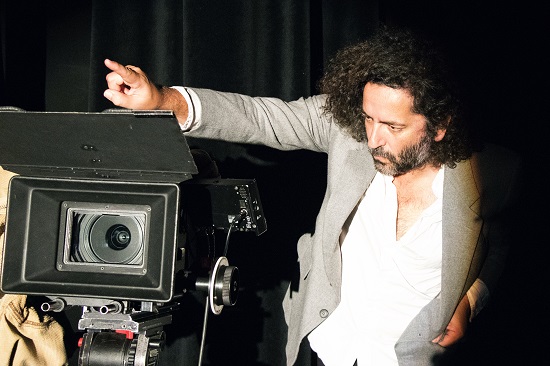
Photo: Ted Bois
The lyrics on Have We Met often hint at extreme violence and horror; there are references to drowning ponies and people “making mincemeat” out of one another, to internment camps and The Boston Strangler. “It seems to me to be, compared to all other Destroyer records, the most grotesque,” Bejar agrees. “And what’s more is it’s strange and slightly unnerving that I sound the most at home sonically, and as a singer. I sound at peace with the subject matter, I deliver it in a very natural, kind of groovy way. They’re not dirges, the music is supposed to be… kind of joyous!”
Like Cohen’s I’m Your Man, Have We Met makes powerful use of disconnection. From the beginning it was decided that he, Collins, and guitarist Nicolas Bragg, the third member of Destroyer’s current studio line-up, would work entirely separately. Bejar began by coming up with “skeleton arrangements and boneheaded bass parts,” then recording what were initially intended to be placeholder vocals directly onto his laptop at his kitchen table, sung quietly in the dead of night so he didn’t wake his sleeping family. He ended up keeping these first takes for the final album, one of the reasons it simmers with so much intimacy and atmosphere.
“For my part I just really fell in love with those vocals. I mean I’m not in love with myself, but I’d never done vocals like that for a Destroyer record. I’d heard once that David Sylvain would sing his vocal parts, and that would be the first thing then the song would get draped around it. I’m starting to sense the appeal of that. Also, in a more sinister way, the more ill-recorded and technically flawed they were the more excuse John had to make them sound really scorched in places and really cook them sonically.”
Collins’ sonic cookery involved him fleshing out these night-time recordings, simultaneously expanding on the vocals’ atmospheric power and intensifying their grisliness. “I went with the mandate of ‘John, just follow your heart!’” Bejar says. “Although his heart always leads him to The Art Of Noise or Malcom McClaren. Which is embarrassing because I’d told everyone I was going to make a record that sounded like The Crow soundtrack.” Then, Bragg was employed to add a little chaos, blazing unpredictable squalls of guitar over the result. "It doesn’t really sound like any sonic space I’ve ever lived in, it doesn’t sound like any actual band playing."
For the first time in Destroyer’s discography, both Bejar and Collins made use of old material. The latter, obsessed with granular synthesis, experimented by feeding, for example, a warm-up take from a decade ago through an app to create abstracted and hazy sounds. “There’s two minutes at the very end of the record that sounds like a plague of locusts which is actually just some kind of synth sound John composed out of a bank of old back-up vocals by Kathryn [Calder] from The New Pornographers.”
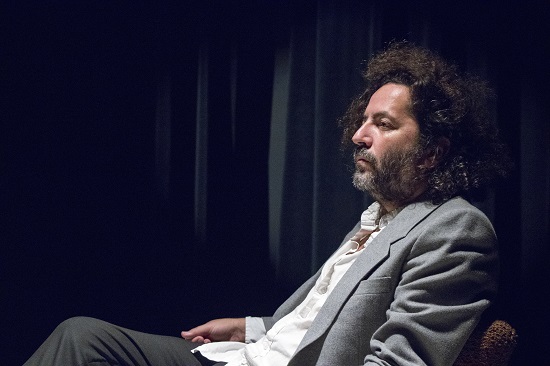
Photo: Ted Bois
Independently, Bejar also found himself poring over unused work, particularly for the record’s looming opening track ‘Crimson Tide’. “Usually Destroyer records are very much chronological, but I had been banking this stuff thinking I could one day use it for some non-musical purpose. I don’t know what you’d call this writing. It’s not poetry, it’s not prose, but I went through it and I thought ‘there’s some lines in this, it’s not un-singable.’”
Bejar claims that there was no conceptual reason for either he or Collins repurposing past work – “I was just messing around with some old writing” – and it is apparently a coincidence that both made similar creative decisions. Nevertheless, you can feel the tight tug of nostalgia on Have We Met, particularly on dusky, atmospheric album track ‘The Raven’, a song that also makes use of old writing. ‘To be drunk on the field again / To be drunk on the field… Again…’ Bejar sings. “When you see me as an old man and I’m just walking around muttering to myself, that’s what the transcript is gonna look like,” he says.
Throughout our interview age seems to be on the musician’s mind. He turned 47 in October, and says his decision to use old material, initially planned for a vague ‘non-musical’ project, was informed by the fact that “Once you get to be middle-aged you’re like, ‘the book’s not here, I don’t have it in me.’” Asked about whether nostalgia influences Have We Met, he hesitates for a full minute. “I don’t so much yearn for the past,” he decides, “but I think it’s really natural as you get older to serenade the past. To sing to the past. I sing to it because it’s erased, but I’m not mourning, it’s not grief.”
He’s seeing the effect of age on his writing, too. Though he constantly refers to himself as ‘lazy’, Bejar’s workrate is among the most consistent in music. Since his debut he has released an album every two to three years, but says “I know I’m slowing down. I can feel it coming. I haven’t written much in the last year. I’m waiting for a shift [in the way I work] because I don’t think it can continue like this, it doesn’t seem realistic. I feel I would like to write more, have more of a steady practise where I force myself to do it and see what comes out, or have the habit of actually playing music for a small chunk of time every day, but I have a very antagonistic relationship with instruments.”
Nevertheless, one of the effects of Bejar’s age and experience is the way in which his writing is becoming freer and more experimental. The new album’s lyrics see him inhabiting different voices that respond or react to one another to create a noirish drama, Bejar framed as the puppet master. ‘Cue synthesizer / Cue guitar / Bring in the drums / Cue fake drum he directs on ‘Cue Synthesizer’ with an icy flourish.
“It’s someone who’s pointing out the manipulation that takes place in the construction of a song,” Bejar explains. “I’ve always been super into stage direction, at least I am these days. It has a kind of ringmaster vibe, a master of ceremonies vibe, and that role of ringmaster or master of ceremonies is traditionally someone who’s partially evil or at least a dark character, that’s part of the fun of it.” Writing in that way, he says, is “something that would have scared me off as a younger person but as an older person I like that, I like the freedom of it. It allows you to do more. I seem to be just writing into that in a natural way, it’s not like I’m sitting down and being like ‘Ok, what character shall I inhabit? What kind of lines shall I spew?’”
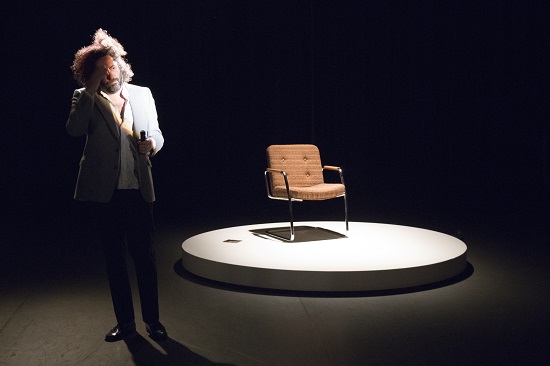
Photo: Ted Bois
That melodrama is crucial to Have We Met. It’s a dark and sinister album, but “it’s not Diamanda Galas,” as Bejar puts it. “I think this album is dark, but in a filmic way and in an entertaining way. When I look back on writing the songs for a record like [Destroyer’s 2015 LP] Poison Season, I was far more morose and inward looking than on this album. I seem to be going through something on that album whereas on this record, I mean the world is a shithouse, but I sound pretty cool with it! I remember Van Morrison once saying that he can’t write at all when he’s depressed, he has to be in a good place, and I feel like I would have to be in a good place to allow myself to just graze, you know, on the subject matter.”
For all of his new record’s swampy, groovy gloom, Bejar is feeling good. Perhaps even optimistic. “Not that I’m luxuriating in the state of the world, but I feel in some ways more hopeful than I would have, say 15 years ago,” he says. “I would without a doubt say the world is a shit place, I would not hesitate, but now I don’t think I would say that. I don’t know if that’s just wishful thinking, but it’s still how I feel, and it’s a feeling that I know I’ll cling to. I think it’s really natural as you get older for the world to seem more disorientating, more menacing, for things to seem so much worse than they were when you remember, but in spite of that I still have faith that things can get better. Or maybe it’s faith that they’ll at least stop getting worse.”
Destroyer’s new album ‘Have We Met’ is released on January 31 via Merge Records/Dead Oceans

